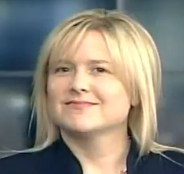January 21st, 2010 by PhilBaumannRN in Better Health Network, Opinion
No Comments »


- Image via CrunchBase
After returning to Twitter after a week-long break, I’ve had the chance to look at the service with a freshened perspective. Twitter needs to stay simple – that’s what drives its success. Nevertheless, I believe Twitter needs to mature and provide exploits of its service. While the basics of Twitter aught to remain, Twitter, Inc. can build a wider ecosystem around those basics which could make it a true contender as an important part of the Web.
Services like Posterous and Friendfeed offer features such as replying via email. Although third-parties could develop similar features via Twitter’s API, it’s time that Twitter mature a bit. If Twitter plays its cards right, it could offer itself as much more than just as the modern equivalent of a telecommunications utility (which it is).
- Email content, replies, DMs. We should have an option to respond to replies & DMs via email. There are services out there such as Topify but they don’t provide the most secure methods. Read more »
*This blog post was originally published at Phil Baumann*
January 20th, 2010 by Bryan Vartabedian, M.D. in Better Health Network, Health Policy
No Comments »

 This picture from 3G Doctor is remarkable. It captures the flier of a Merck supported Mexican Medmobile initiative that apparently connects patients with their doctors via SMS (translation available on 3G Doctor Blog.)
This picture from 3G Doctor is remarkable. It captures the flier of a Merck supported Mexican Medmobile initiative that apparently connects patients with their doctors via SMS (translation available on 3G Doctor Blog.)
But don’t expect fliers of this type in American offices anytime soon. Risk of privacy violation and difficulty in documentation stifle this level of
doctor-patient connectivity. The very laws created to protect patients may ultimately thwart the timely adoption of new communication channels.
And the slow march towards a single payer system will only make real connectivity a rare bird.
Look to the groundswell in mobile technology and social platforms will force change in our current privacy laws. Until then look for innovation to come from the second and third world.

*This blog post was originally published at 33 Charts*
January 18th, 2010 by Dr. Val Jones in Audio, Expert Interviews
2 Comments »
 Thanks to my friends at #HCSM (a Twitter group created to spark discussion about healthcare and social media) for inviting me as a guest speaker on their 1 year anniversary. We had a special Blog Talk Radio event, moderated by Lee Aase (Mayo Clinic’s social media guru) and Dana Lewis. Tom Stitt and Meredith Gould were also critical in coordinating programming and technical arrangements.
Thanks to my friends at #HCSM (a Twitter group created to spark discussion about healthcare and social media) for inviting me as a guest speaker on their 1 year anniversary. We had a special Blog Talk Radio event, moderated by Lee Aase (Mayo Clinic’s social media guru) and Dana Lewis. Tom Stitt and Meredith Gould were also critical in coordinating programming and technical arrangements.
The goal of the show was to discuss how social media and healthcare intersect – with a diverse group of 8 speakers (from patients, to physicians, to industry and insurance stakeholders). I’ve edited my clip for your listening pleasure (please excuse the technical glitch near the end – you’ll know it when you hear it). The full 2 hour show may be downloaded from Blog Talk Radio.
[Audio:https://getbetterhealth.com/wp-content/uploads/2010/01/leeaasedrval.mp3]
For more information about my practice, check out DocTalker.com Read more »
January 15th, 2010 by KevinMD in Better Health Network, Opinion
No Comments »

Thanks to Medscape for including my take in their recent article, “Is Twitter a “must” for doctors?”
I discuss some common sense tips doctors should follow while using Twitter:
1. Patient privacy is paramount. Do not discuss individual cases or provide patient advice via Twitter.
2. Use Twitter to point your patients to trustworthy online health information sources.
3. Use Twitter as a tool to promote your practice’s brand. More and more patients are using Twitter; those who do are likely to feel positive about their physicians using it as well. More than just a fad, Pho says that Twitter is here to stay and offers tremendous potential.
4. Remind your patients using Twitter: Be careful whom you follow. Anyone can sign up for Twitter claiming to be a physician. Read more »
*This blog post was originally published at KevinMD.com*
January 14th, 2010 by Berci in Better Health Network, Health Tips
1 Comment »

Whenever I talk about medical professionals using social media, people are surprised by what I say. Most people think they can hide online and never have to reveal their real identity. I think they are wrong. In the online world, it’s much easier to find out private information about someone who wasn’t cautious enough than in real life. A recent example includes Doctors warned of Facebook flirts (e-Health article):
The Medical Defence Union said it was aware of a number of cases where patients have attempted to proposition doctors by sending them an unsolicited message on Facebook or similar sites. The medical defence body said it would be “wholly inappropriate” to respond to a patient making an advance in such a way. Read more »
*This blog post was originally published at ScienceRoll*
















